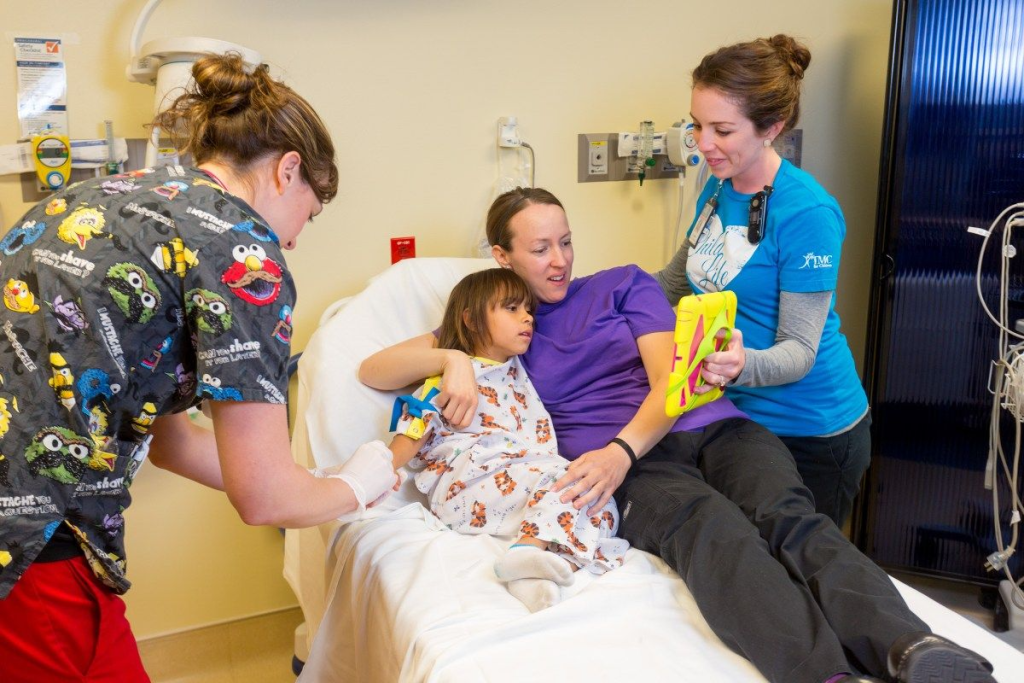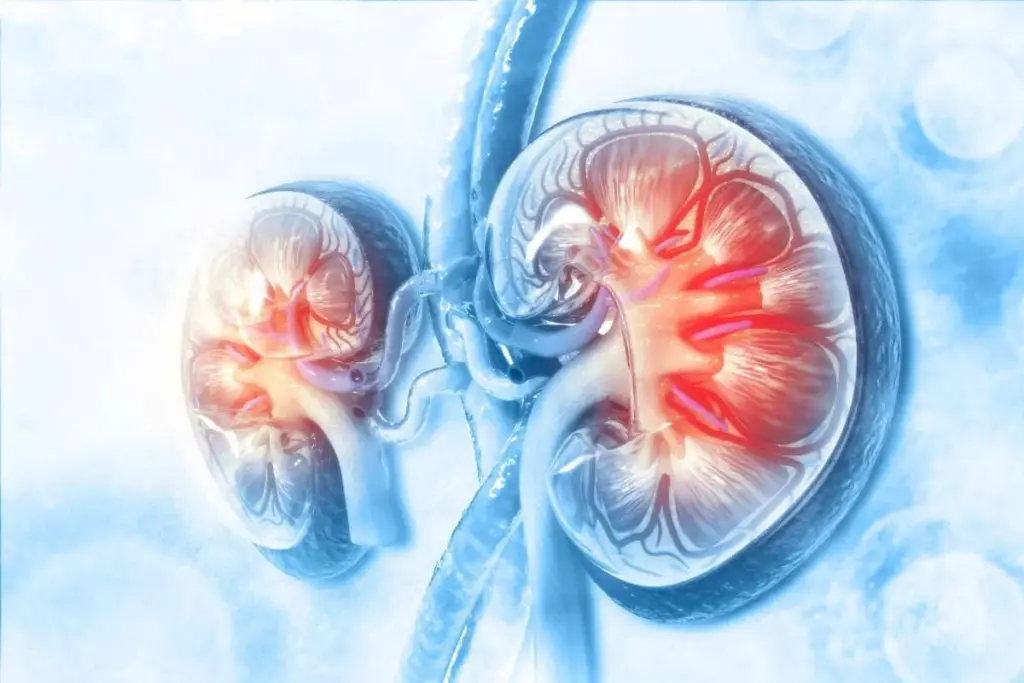After an appendectomy surgery, kids need time to get better before going back to school.
Usually, kids can go back to school a week after an appendectomy. How soon they can go back depends on the surgery type and their health.

Recent studies show kids who have laparoscopic surgery might go back to school in 1-2 days if they feel okay. The appendectomy recovery time can vary, but most kids get back to normal in a few days.
Key Takeaways
- Most children return to school within 1 week after an uncomplicated appendectomy.
- Laparoscopic surgery typically allows for a quicker recovery.
- Children can return to school when they feel comfortable.
- The type of surgery influences the recovery timeframe.
- A child’s overall health plays a significant role in determining their recovery time.
Understanding What Happens During a Pediatric Appendectomy
For parents, knowing what happens during a pediatric appendectomy can be a big relief. An appendectomy is done to treat appendicitis, when the appendix gets inflamed. Learning about the surgery and its types can ease worries.
The Appendectomy Procedure Explained
An appendectomy removes the appendix. It’s usually done under general anesthesia, so the child won’t feel pain. Laparoscopic surgery is often chosen because it’s less invasive. It uses small incisions for a camera and tools to take out the appendix.

Laparoscopic vs. Open Surgical Techniques
Choosing between laparoscopic and open surgery depends on several factors. Laparoscopic surgery is preferred for its quick recovery and less scarring. Open surgery, with a bigger cut, is used for more serious cases or when laparoscopic tools aren’t available.
Uncomplicated vs. Complicated Appendicitis Cases
Appendicitis can be either uncomplicated or complicated, based on whether the appendix has burst. Most pediatric appendectomies are now laparoscopic, which means quicker healing. Uncomplicated cases usually have a faster recovery. But complicated cases, where the appendix has burst, need more care and may take longer to get better.
Knowing these differences helps manage expectations and ensures a smooth recovery for the child.
Standard Recovery Timeline After an Appendectomy
After an appendectomy, there are key milestones to watch for. Knowing these can help manage your child’s recovery. It’s important to spot any issues early.

Typical Hospital Stay Duration
The time spent in the hospital varies. It depends on the surgery type and how complex the case is. Most kids go home the same day or the next day after surgery.
“The majority of patients can go home within 24 hours,” a study says. This shows how far surgery and care have come.
First 48 Hours of Home Recovery
The first two days at home are critical. Kids might feel pain, tired, and nauseous. Parents need to watch their child closely.
Managing pain and rest is key. “Rest is vital in the early recovery stages,” According to a Medical Expert. “Keeping your child from doing too much helps them heal faster.”
Key Factors That Influence Recovery Speed
Several things affect how fast a child recovers. The surgery type, how sick the appendix was, and the child’s health matter. Laparoscopic surgery usually means faster recovery.
Age, nutrition, and no complications also help. Following recovery advice and checking with doctors is important. This way, your child can get back to normal sooner.
Returning to School After Laparoscopic Appendectomy
Children who had laparoscopic surgery for simple appendicitis can go back to school in a few days. This fast recovery is a big plus of laparoscopic surgery over open surgery.
The surgery uses small cuts for tools and a camera to take out the appendix. This minimally invasive technique causes less damage, less pain, and heals faster than open surgery.
1-2 Day Return Timeline for Uncomplicated Cases
For kids with simple appendicitis, recovery is quick. Most can go back to school in 1-2 days after surgery. But parents need to keep a close eye on their child during this time.
Benefits of Minimally Invasive Techniques for Quicker Recovery
Laparoscopic appendectomy has many benefits for a faster recovery:
- Smaller cuts mean less scarring and lower infection risk.
- Less pain after surgery lets kids get back to normal faster.
- Many kids can leave the hospital the same day or the next day.

What Parents Should Monitor During the First Week Back
In the first week back at school, parents should look out for:
- Fever over 100.4 °F (38 °C).
- More belly pain or tenderness.
- Redness, swelling, or discharge from the surgical area.
- Vomiting or not wanting to eat.
Make sure the child rests well and eats a balanced diet to help them heal. If they show any worrying signs, talk to their doctor right away.
Recovery Guidelines for Complicated Appendicitis Cases
Children with complicated appendicitis need more time to get better. Unlike simple cases, where kids can go back to normal in a week or two, these cases take longer. They often need more time to heal.
Extended Recovery Periods
Children with complicated appendicitis might need two weeks or more to fully recover. This extra time is important to make sure they heal completely from surgery and any complications. It’s key for parents to watch their child’s progress closely during this time.
Clear Indicators for Return
Before going back to school, kids should show certain signs. These signs mean they’re ready to return:
- They can do daily tasks without pain or discomfort.
- They have a normal appetite and can eat without trouble.
- They don’t have a fever or signs of infection.
- They can join in school activities without making their condition worse.
Managing Follow-Up Care
It’s important to manage follow-up care while at school. Parents should:
- Talk to school officials about their child’s health and any needed help.
- Give the school any medicine or emergency contact info.
- Keep an eye on their child’s health and tell their doctor about any worries.
By following these steps, parents can help their child smoothly go back to school after a complicated appendicitis diagnosis.
Activity Restrictions and Physical Education Guidelines
After an appendectomy, knowing the rules for physical activities is key. It helps ensure a safe and healthy healing process. Some activities can help, while others can slow down recovery.
Restriction Period for Physical Activities
For 2-4 weeks after surgery, it’s best to avoid the gym or contact sports. This rule helps prevent wound reopening or internal injuries. Heavy lifting, strenuous activity, or competitive sports are advised against for 1-2 weeks. The exact time depends on how fast you recover and your doctor’s advice.
Communicating Limitations to PE Teachers
Telling PE teachers or school staff about your child’s limits is vital. This way, your child won’t have to do things that could harm their healing. A doctor’s note can help explain the situation and what’s needed.
“Clear communication with school staff about a child’s post-surgical limitations can significantly impact their recovery process.”
Safe Classroom Activities During Recovery
Even with some activities off-limits, kids can stay involved in school. Light, non-strenuous activities that don’t require much effort are usually okay. For example, they can join in classroom talks, work on projects, or help out in PE without physical effort.
- Keep an eye on how your child is doing and adjust activities as needed.
- Make sure they get enough rest.
- Stick to the surgeon’s advice on when to start activities again.
By following these guidelines, parents can help their child recover smoothly. This way, they can get back to their usual activities sooner.
Preparing Your Child and School Staff for the Return
Getting your child and school staff ready for school is key. After an appendectomy, it’s more than just going back to class. It’s about making sure everyone is ready.
Essential Conversations with School Administrators
Talking to school administrators is a first step. Discuss your child’s health, any limits, and what they need to recover well. Telling the school about the surgery and recovery time helps them understand your child’s needs.
Also, talk about what your child might need, like more time on homework or avoiding some activities. This way, you can make a supportive space for your child’s recovery.
Documentation and Accommodations to Request
You might need to give the school some papers. This could be a doctor’s note and what your child needs. Ask for things like extra breaks or changes in gym class to help your child not get too tired.
You might also need to fill out forms or keep the school updated on your child’s healing. Keeping them in the loop helps them support your child better.
Creating a Comfortable Environment for Recovery
Creating a good space for your child to recover at school is important. It’s not just about schoolwork. Talk to teachers about comfy seats or letting your child skip recess can help a lot.
Also, teach your child’s friends about their health in a way they can understand. This can help make school a more supportive place for your child.
Warning Signs That Indicate Your Child Should Stay Home Longer
It’s important to know when your child needs more time to get better after an appendectomy. Most kids can go back to their usual activities in a few days. But some might need more time. Parents should watch for signs that their child should stay home longer.
Physical Symptoms Requiring Medical Attention
Some physical signs show that your child might not be getting better as they should. These include:
- Fever: A high or lasting fever could mean an infection.
- Vomiting: Going on and on can cause dehydration.
- Increasing pain: Pain that gets worse or doesn’t go away with medicine.
- Redness or swelling: Around the surgery area, which might mean infection or other problems.
Emotional and Comfort Indicators to Monitor
It’s also key to watch for emotional and comfort signs. Kids might feel:
- Anxious or uneasy: If they’re not getting better as fast as they should.
- Fatigue: Being very tired that doesn’t get better with rest.
- Discomfort: Feeling uncomfortable all the time, which affects their daily life.
When to Consult with Your Surgeon About Delayed Return
If your child shows any of these signs or you’re worried about their recovery, talk to their surgeon. The surgeon can tell if it’s okay for your child to go back to school or if they need more time. Always be careful with your child’s health.
By watching for these warning signs, you can make sure your child fully recovers and safely goes back to their usual routine.
Conclusion: Ensuring a Smooth Transition Back to School
Getting back to school after an appendectomy needs careful planning. It’s important to know how to recover and be ready for anything. Doctors say following up with care and watching for signs is key.
Parents should know how long it takes to heal from an appendix issue. This helps them get their child ready for school. They can make sure the child doesn’t overdo it and gets the right help.
Working together, parents, teachers, and doctors can make the return to school smooth. Knowing the recovery steps and watching for any problems helps. This way, kids can go back to school safely and do well.
FAQ’s:
How long does it take to recover from an appendectomy?
Recovery time from an appendectomy varies. It depends on the surgery type and the person’s health. Generally, it takes a few days to several weeks to fully recover. Kids might go back to school in 1-2 days after a laparoscopic surgery.
What is the difference between a laparoscopic and an open appendectomy?
Laparoscopic appendectomy is a small-incision surgery. Open appendectomy uses a bigger cut. Laparoscopic surgery causes less pain and heals faster.
How long does a child need to stay in the hospital after an appendectomy?
Hospital stay varies by case complexity and surgery type. Simple cases might leave in a day or two. More complex cases could need longer stays.
What are the signs that a child is ready to return to school after an appendectomy?
Signs of readiness include managing pain with meds, doing daily tasks without pain, and eating normally. For complex cases, no fever and healing signs are key.
Are there any activity restrictions after an appendectomy?
Yes, kids should avoid heavy lifting, bending, and hard activities for 2-4 weeks. Physical education might need to be modified or skipped.
How can parents prepare the school staff for a child’s return after an appendectomy?
Inform school staff about the child’s condition and needs. Discussing with teachers and providing the surgeon’s notes helps the transition.
What are the warning signs that a child should stay home longer after an appendectomy?
Warning signs include fever, severe pain, or vomiting. Emotional signs like anxiety also mean staying home. Always check with the surgeon.
How long does it take for a child to fully recover from complicated appendicitis?
Complicated cases take longer, often two weeks or more. A specific recovery plan, including follow-up care, is needed.
Can a child participate in physical education classes after an appendectomy?
Avoid physical education for 2-4 weeks. Talk to PE teachers to modify or excuse your child’s activities.
What kind of follow-up care is needed after an appendectomy?
Follow-up care includes monitoring for complications, managing pain, and ensuring healing. The surgeon will guide on necessary appointments and treatments.
References:
- National Center for Biotechnology Information (NCBI). (n.d.). Pediatric Appendicitis: A Review of Clinical Guidelines. Retrieved from https://www.ncbi.nlm.nih.gov/books/NBK459345/.








